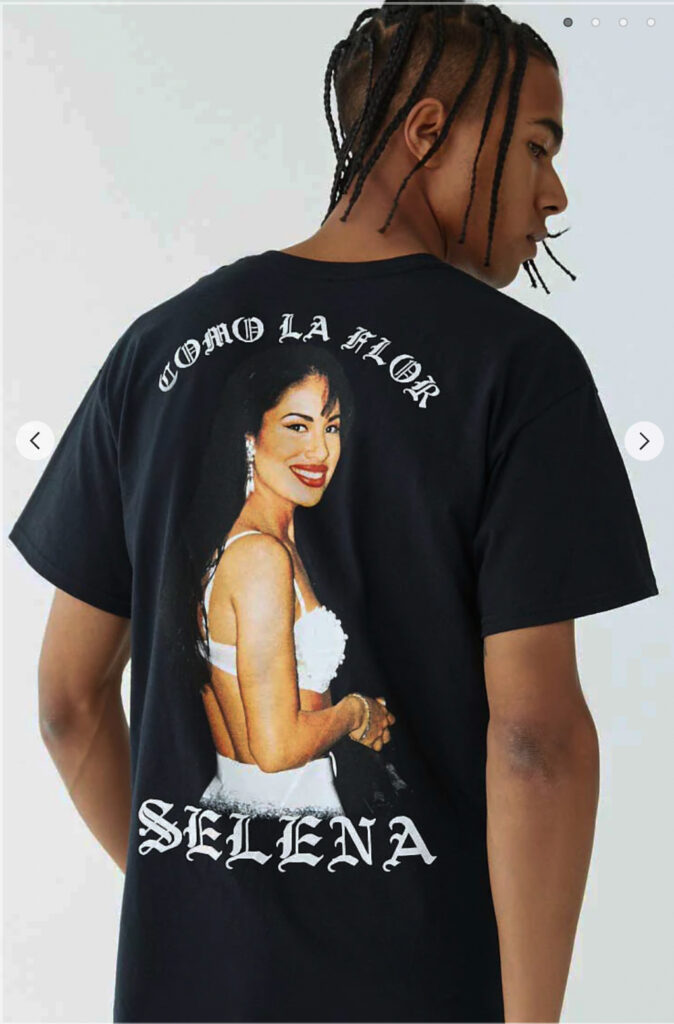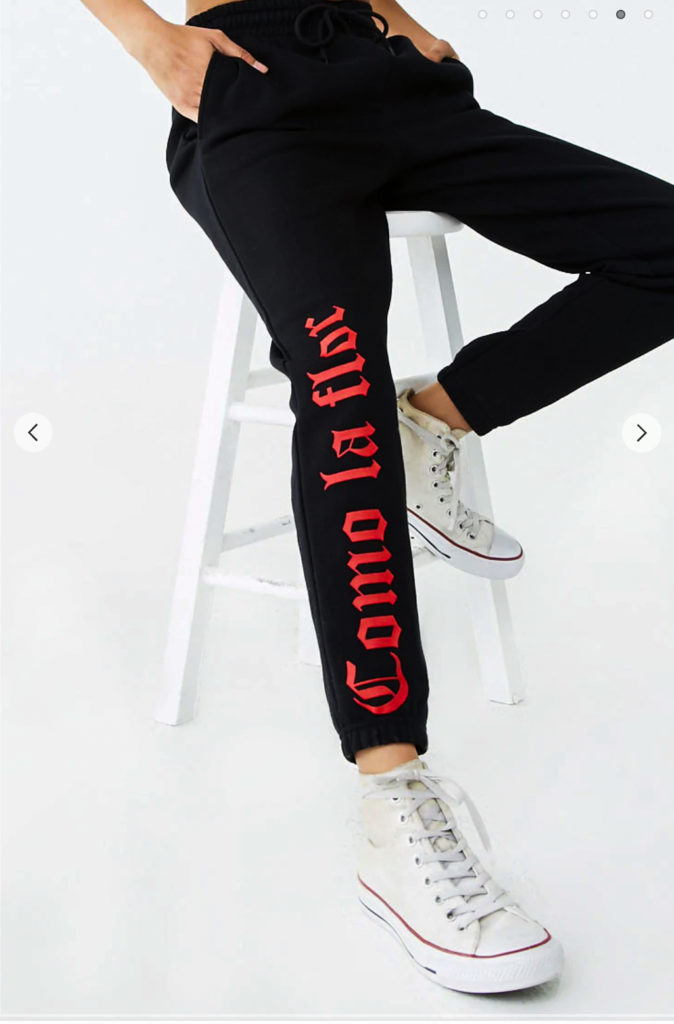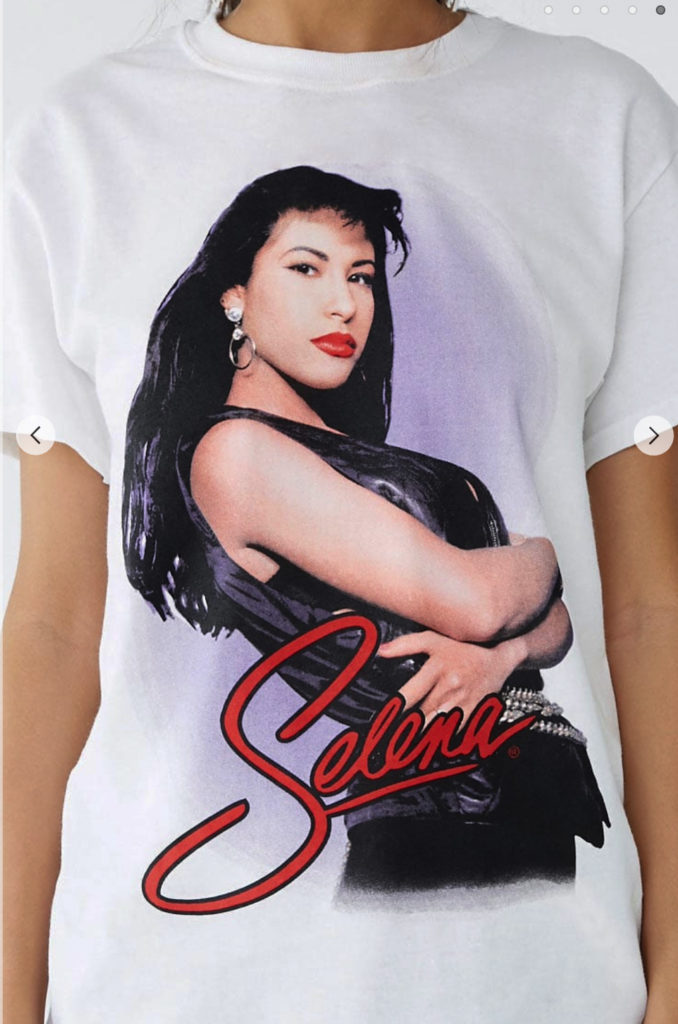While paying Latino factory workers six dollars per hour, fast-fashion retailer Forever 21 launched a Selena Quintanilla collection to celebrate the anniversary of the late Tejano singer’s 1997 biopic.

According to The Los Angeles Times, the U.S. Department of Labor investigated 77 Los Angeles garment factories between April and July 2016. They found retailers Forever 21, Ross Dress for Less and TJ Maxx paid Los Angeles factory workers as low as four dollars per hour.
During the four month period, labor violations were discovered in 85 percent of factories, according to The Los Angeles Times. Suppliers were ordered to back pay workers, but retailers were not penalized.
In a statement to NBC News, Forever 21 said, “We have Selena products in our stores on a constant basis, and they are some of our highest performing styles. Because of this, we wanted to do something special.”
In other words, this company is blatantly admitting that Quintanilla products draw in consumers, which can result in a substantial profit. That is why they are launching the line. It’s not to honor the singer, her legacy or the biopic. It’s to make money off of her image while simultaneously paying Latino immigrants six dollars to tag, sew and snip loose threads off clothing.
The cheapest item in the collection starts at seven dollars, or the average hourly pay of some of the Los Angeles factory workers.
Called “The White Rose Collection”, Forever 21 pulls in customers by describing the line as “an exclusive collection celebrating our icon, Selena” on their website.
Our icon, Selena, would not stand for the injustices Latino factory workers face in factories that are producing Forever 21 clothing.
Our icon, Selena, did not bring Latino culture to the mainstream and encompass the American dream for a retailer to profit off of her image based on lackluster clothing designs.
Beyond Forever 21’s dicey track record with factory workers, the line itself is an abomination.
Coined as an inclusive line that ranges between sizes extra small to three-x, according to Bustle and People, most items actually come in sizes small to large.
The collection includes bandana-print tube tops and skirts. As a Latina highly influenced by the legend’s style and iconic fashion moments, I think I would at least vaguely remember if I ever saw Quintanilla wearing something with a bandana-print. I don’t.

However, I do remember a majority of Latino representation within media revolving around Latino gang members sporting bandanas and bandana-print.
The bulk of the collection is graphic t-shirts with Quintanilla’s most popular photos on them and Quintanilla’s 1992 song, “Como la Flor”, in an Old English graffiti-type font. What’s so exclusive about these pieces? Ross Dress for Less carries similar styles.
There are hints of some imagination in the collection with a fringe lace jumpsuit, mimicking fringe jackets the singer occasionally donned. This piece comes in sizes zero-x to three-x, shunning a portion of Quintanilla fans.
This line is less about celebrating Quintanilla, her accomplishments or a reflection of her most memorable fashion moments and more a lazy rollout of basic pieces that will make Forever 21 a quick dollar.
Quintanilla, a curvy woman by fashion industry standards, understood the importance of inclusivity. She had a boutique and created clothing containing Latin American textures that celebrated her heritage. Forever 21’s use of stereotypical Latino prints and fonts will be consumed by wannabe-edgy “influencers” and not Quintanilla fans.

The retailer could have hired a Latino who knows Quintanilla’s impact within the community and a person who knew how to take what the singer wore and emulate it into pieces that could be worn today.
Die-hard fans have enough shirts with Quintanilla’s face and instead want clothes truly influenced by the singer.
If Forever 21 wants to truly celebrate the late-singer, they need to reevaluate their system. They cannot choose to highlight a single prominent Latino figure for their benefit and ignore other important figures who paved the way.
They cannot claim inclusivity while closing off particular pieces to particular women. They cannot say they are celebrating a staple within Latino culture while also paying Latino factory workers unlivable wages.


















